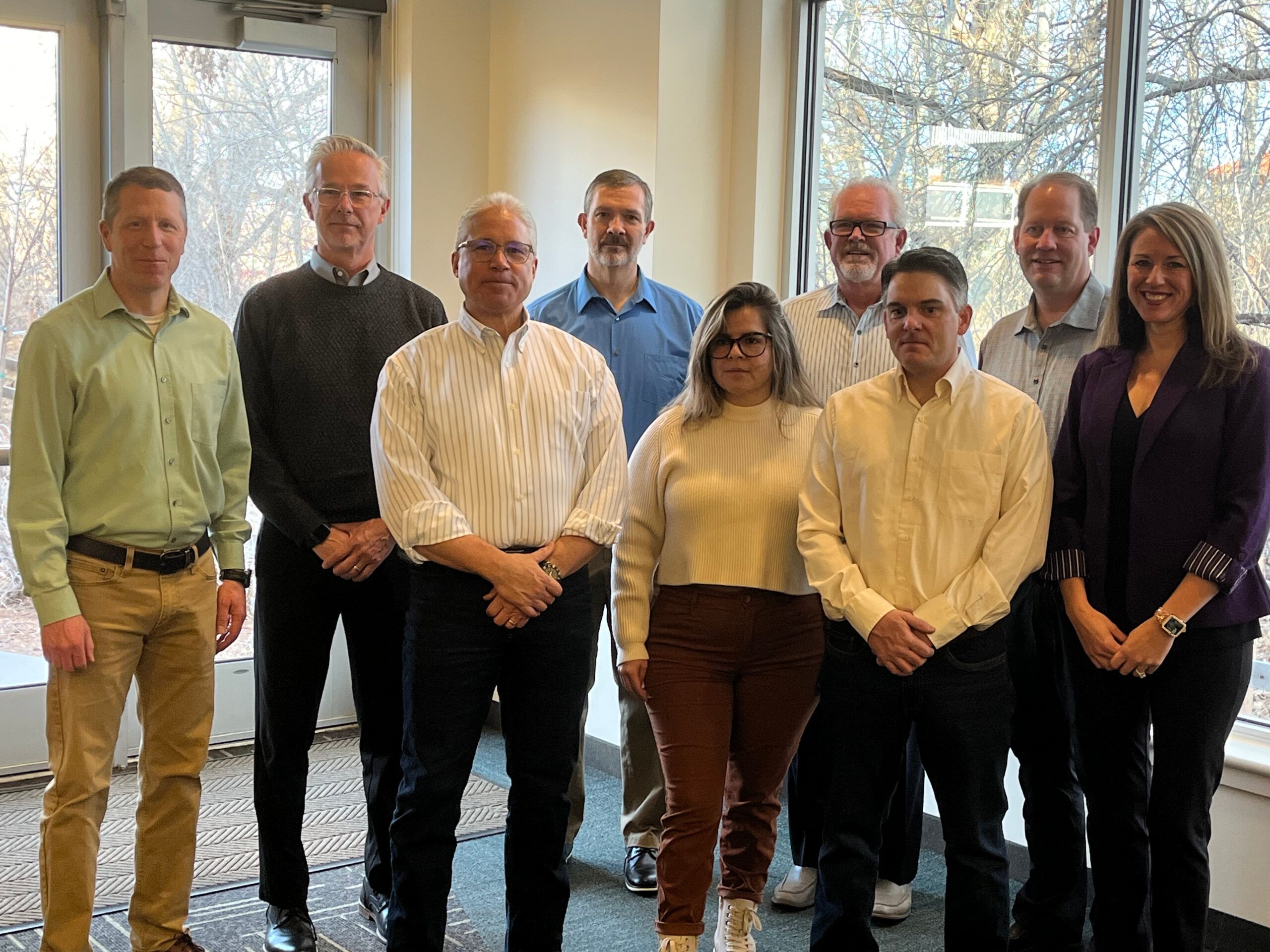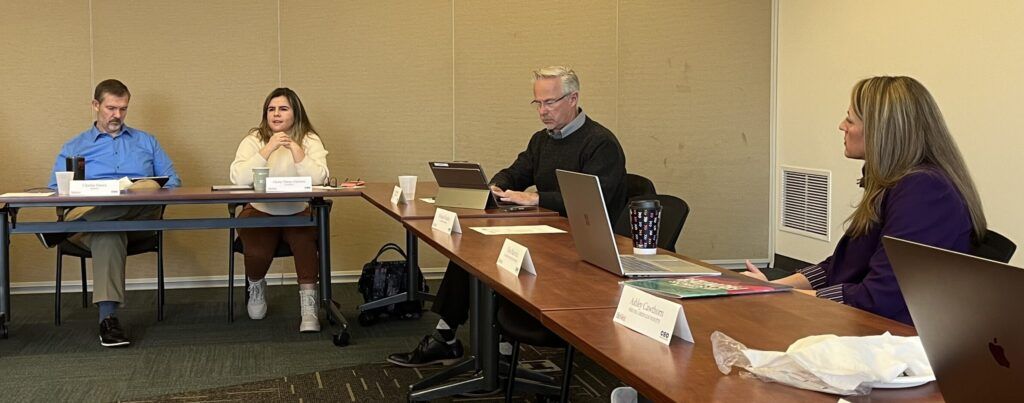Area life-science companies attract new attention

FORT COLLINS — Colorado in general and Northern Colorado in particular is witnessing increased attention to its cluster of life science companies, which means an easier path to funding, a deeper worker pool and willingness of the coastal giants of the industry to engage with local companies.
Leaders in the life science and bioscience industry in Northern Colorado gathered this morning at BizWest’s CEO Roundtable at Innosphere in northern Fort Collins to talk about industry trends.
The roundtable was sponsored by accounting firm Plante Moran, Elevations Credit Union, and law firm Berg Hill Greenleaf Ruscitti LLP.
SPONSORED CONTENT
Select your Republic Services residential cart now!
In preparation for Republic Services becoming the primary provider of residential recycling, yard trimmings, and trash, residents should now select the best cart size and service schedule for their household needs.
“Northern Colorado is a vital part of the bioscience industry,” said Elyse Blazevich, the CEO of the Colorado Bioscience Association. “Seventeen percent of the state’s life sciences assets are in Northern Colorado,” with much of the activity — although certainly not all — centered on animal health and ag bioscience, she said.

None of the participants at the roundtable were in ag science disciplines, however.
Thomas Reilly, CEO of AST, is working to develop wearable technology to monitor health or workplace safety.
Charles Henry serves as CEO of Burst-DX, an early-stage diagnostics company working to develop lab-quality home-based tests for medical conditions such as strep throat.
Maria Navas-Moreno, founder and CEO of illumifyDx, is working on cancer diagnostic tests from blood and bodily fluids.
Blazevich said that the state has taken a great interest in life science research and funding of industry companies. The bioscience association is supporting House Bill 1231, which would fund four life science projects in the state, including two in Northern Colorado — the osteopathic medical school at the University of Northern Colorado and expansion of the veterinary science program at Colorado State University.
“We’re seeing municipalities and economic developers turn more strategic focus to supporting life sciences. The city of Fort Collins has added climate tech and life sciences to its core pillars in the city strategic plan,” she said.
“Tuesday, the state will announce a major initiative geared to accelerate the health of life sciences in Colorado. Lab space, which has been in short supply throughout the state, is seeing growth, with 3.5 million square feet of space planned or under construction along the Front Range, much of that in the Boulder/U.S. Highway 36 corridor.
“We’re seeing more fundraising, more and larger M&A transactions. Companies are seeing Colorado as an opportunity with an affordable cost of living, quality of life, supportive environment and collaborative community,” Blazevich said.
Kevin Noble, director of life sciences for Innosphere, the incubator organization in the region, said its first cohort, which graduated last April, met 100% of its capital goals. The second cohort is also doing well, he said.

Innosphere has attracted the attention of the U.S. Economic Development Administration, which provided a grant that enables the organization to expand into six states. Instead of working with eight companies, Innosphere will now be working with 36, which he described as “a powerful network.”
Reilly, of AST, said health care interests have shown interest in his company’s intellectual property, one of which forms the basis for a home health box — a “stationary device that captures a comprehensive understanding of the environment you’re in.” For those with asthma or COPD, it can help them manage their conditions based upon their indoor environment.
“We spend 90% of our time indoors, but we don’t characterize that very well or often,” he said.
Another product, a wearable device about the size of a large cell phone, enables parents to monitor the environment in which their children are exposed. “Or elderly people with neurodegenerative diseases (Alzheimer’s, Parkinson”s) — what are the factors that might influence that.”

Henry said Burst’s first product, which he hopes will be ready by early 2025, will be an accurate, easy-to-administer saliva-based rapid strep test. He said that scraped throat cultures are not always easy to administer and not always accurate as a result, which can result in overuse of antibiotics.
Navas-Moreno of illumifyDx, a University of California-Davis spinoff, said the cancer diagnostic tests that her company is developing are focused on information other than genetics. She said her lab is in California but is looking to create a central lab; she sees Colorado as a prime location, especially because of the network of universities in the region.
Having a lab independent of a university is important, Navas-Moreno said, and others concurred.
“You have to get outside of the university for IP reasons,” she said, referring to who owns the intellectual property.
“University support is important, but negotiations with a university over the IP can get very murky,” Henry said.
Innosphere has provided lab space for multiple life science startups as a result.

Fundraising remains a major hurdle for life science startups, but it’s getting easier to begin conversations, industry leaders said.
“We got lucky in the past year to raise money,” said Henry, with multiple investors located on the coasts. “But it is easier to have conversations now than 10 years ago. More people are aware of Colorado. There have been a lot of successes in Colorado.”
Noble said that Innosphere Ventures has found that investors have gotten more conservative. “It’s more strategy, more homework, but there’s an opportunity for good scientific products.”
Said Navas-Moreno, “During the pandemic, when interest rates were near 0, they (investors) were betting on ideas. Now, they’re more risk averse. They want more sure-thing investments.”
Interest rates and inflation also have been factors for the life science industry.
“You can feel the stress among employees,” Reilly said.
“When you’re early-stage revenue, you’re burning money on a monthly basis to keep the business going as you’re introducing a product to the market. You’re seeing things that you couldn’t emulate on the bench. When supply chain lead times are long, and cost of materials are going up, and you’re getting pressure from hospitals to bring the price of products down, there’s definitely a squeeze,” Blazevich said.
Cost of living, she said, can be a factor in hiring “but we’re not hearing that it is a barrier, but (instead) a decision criteria” for people thinking of relocating to Colorado.

Colorado in general and Northern Colorado in particular is witnessing increased attention to its cluster of life science companies, which means an easier path to funding, a deeper worker pool and willingness of the coastal giants of the industry to engage with local companies.
THIS ARTICLE IS FOR SUBSCRIBERS ONLY
Continue reading for less than $3 per week!
Get a month of award-winning local business news, trends and insights
Access award-winning content today!


